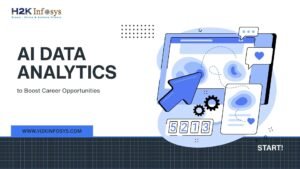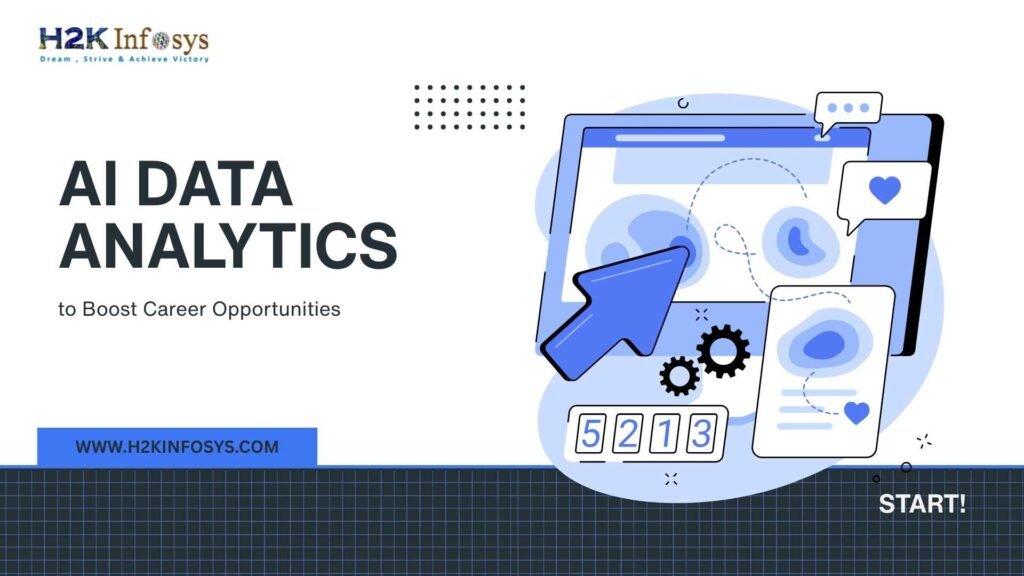Introduction
Data analytics has become one of the most sought-after career paths in today’s tech-driven economy. From e-commerce to finance, healthcare, and marketing, every organization depends on data-driven decision-making. But if there’s one foundational skill that connects all these industries it’s SQL skills.
SQL (Structured Query Language) is the universal language of data, allowing professionals to extract, analyse, and interpret meaningful insights from vast datasets. For anyone pursuing or growing in data analytics, mastering SQL skills isn’t optional; it’s essential.
Why SQL Skills Matter in Data Analytics

Before diving into advanced analytics tools or AI-driven models, data analysts must first know how to work with data efficiently. SQL plays a pivotal role here. It helps analysts communicate directly with databases, enabling them to access raw data, perform transformations, and prepare datasets for visualization and reporting.
Without SQL, analysts often struggle to manage large datasets effectively or depend heavily on automated tools which limits flexibility and insight depth.
Key Reasons SQL Is Crucial for Data Analysts
- Direct Data Access: SQL allows analysts to access and query data directly from relational databases like MySQL, PostgreSQL, or SQL Server.
- Data Cleaning and Transformation: Analysts can filter, sort, and clean datasets using SQL commands before loading them into visualization tools.
- Efficiency: SQL queries retrieve large volumes of data much faster than manual processes or spreadsheets.
- Integration: SQL connects seamlessly with business intelligence tools such as Power BI, Tableau, and Python libraries like Pandas.
- Career Demand: Nearly every data analytics job listing today mentions SQL as a required or preferred skill.
According to a 2025 LinkedIn report, over 60% of data analytics job postings list SQL as one of the top three must-have skills, followed by Python and Excel. That alone highlights how foundational it is for analytics professionals.
The Role of SQL in the Data Analytics Process
To understand the importance of SQL skills, let’s break down where it fits into the typical data analytics workflow.
Data Collection
Data is stored across multiple sources databases, APIs, spreadsheets, or cloud storage. SQL helps analysts connect directly to relational databases and pull only the data they need.
Example:
SELECT name, age, salary FROM employees WHERE department = 'Data Analytics';
This simple query retrieves employee data filtered by department. Such commands are vital when dealing with large enterprise systems.
Data Cleaning and Preparation
Data cleaning is a major part of an analyst’s job. SQL provides various functions like TRIM(), REPLACE(), or CAST() to correct formatting issues, remove duplicates, and prepare data for analysis.
Example:
SELECT DISTINCT customer_id, UPPER(city) AS city_name FROM customers;
This command standardizes city names in uppercase and removes duplicate entries a key step before visualization or reporting.
Data Analysis

Once the dataset is clean, SQL helps summarize and analyze it. Using aggregation functions like SUM(), AVG(), or COUNT(), analysts can easily extract meaningful metrics.
Example:
SELECT department, AVG(salary) AS average_salary FROM employees GROUP BY department;
This query provides average salaries per department, helping HR teams identify pay gaps or performance-related insights.
Data Visualization and Reporting
While SQL isn’t a visualization tool itself, it integrates seamlessly with platforms like Tableau, Power BI, or Python-based visualization libraries. Analysts use SQL to build data models that feed visual dashboards, ensuring real-time and accurate analytics.
Real-World Use Cases of SQL in Data Analytics
Let’s explore how SQL is applied in real-world scenarios across industries.
Marketing Analytics
Marketing teams use SQL to track campaign performance, segment audiences, and calculate conversion rates.
Example:
SELECT campaign_id,
COUNT(customer_id) AS total_conversions,
(COUNT(customer_id)/SUM(impressions))*100 AS conversion_rate
FROM campaign_data
GROUP BY campaign_id;
This SQL command helps marketers measure the success rate of campaigns.
Finance and Banking
Financial analysts rely on SQL to identify transaction patterns, detect fraud, and manage risk.
Example:
SELECT account_id, SUM(amount) AS total_spent FROM transactions WHERE transaction_date BETWEEN '2025-01-01' AND '2025-10-01' GROUP BY account_id HAVING SUM(amount) > 50000;
Healthcare Analytics
SQL helps healthcare analysts extract patient records, monitor treatment outcomes, and improve operational efficiency.
Example:
SELECT doctor_id, COUNT(patient_id) AS patient_count FROM appointments WHERE diagnosis = 'Diabetes' GROUP BY doctor_id;
Such data supports hospital management in resource allocation and performance analysis.
E-commerce and Retail

SQL queries drive product performance analysis, customer segmentation, and inventory optimization.
Example:
SELECT product_name, SUM(quantity_sold) AS total_sold FROM sales WHERE sale_date > '2025-01-01' GROUP BY product_name ORDER BY total_sold DESC LIMIT 10;
This helps e-commerce businesses identify top-selling products and manage stock levels effectively.
The Connection Between SQL Skills and Career Growth
Strong SQL skills don’t just make you a better data analyst they make you more employable. Companies prefer candidates who can handle large-scale data efficiently without relying solely on tools.
Top Career Roles That Require SQL Skills
- Data Analyst – Cleans, analyzes, and reports data insights using SQL queries.
- Business Intelligence Analyst – Uses SQL with tools like Power BI or Tableau for dashboards.
- Data Engineer – Builds and manages data pipelines with SQL-based ETL operations.
- Database Administrator – Manages database performance, queries, and security.
- Machine Learning Engineer – Uses SQL for feature extraction and data preprocessing.
According to Indeed, the average salary for professionals with SQL and analytics expertise ranges between $85,000 and $120,000 annually in the U.S. This trend continues to grow as businesses expand their data-driven strategies.
Building SQL Skills Through a Data Analytics Course
For those new to analytics or looking to upgrade their skills, enrolling in a Data Analytics certification program is the most practical approach. Courses offered by H2K Infosys provide structured, hands-on training in SQL, Python, Tableau, and Power BI all essential for becoming a job-ready data professional.
What You’ll Learn:
- SQL Fundamentals: Queries, joins, subqueries, and data manipulation
- Data Cleaning and Analysis: Using SQL for transformation and validation
- Integration with BI Tools: Applying SQL in Tableau and Power BI
- Real-World Projects: Work with live datasets and case studies from finance, marketing, and healthcare sectors
Such a comprehensive Data Analytics course ensures you don’t just learn SQL you apply it in realistic business scenarios.
Tips to Strengthen Your SQL Skills for Analytics
- Practice Daily: Use free datasets like Kaggle or company data to write and optimize SQL queries.
- Understand Joins and Aggregations: These are the backbone of most analytics queries.
- Work with Real Databases: Try MySQL, PostgreSQL, or cloud databases like AWS RDS.
- Participate in SQL Challenges: Platforms like LeetCode and HackerRank offer SQL problem sets that test analytical thinking.
- Collaborate on Projects: Real-world collaboration exposes you to varied data structures and complex problem-solving.
How SQL Complements Other Analytics Tools
SQL doesn’t work in isolation. It complements and powers several other technologies in the analytics ecosystem.
- SQL + Python: Use SQL to extract data and Python for modeling and visualization.
- SQL + Power BI/Tableau: SQL serves as the data backbone for dashboards and KPIs.
- SQL + Excel: Many organizations still integrate SQL queries with Excel for quick data refreshes.
- SQL + Cloud Platforms: With tools like Google BigQuery and AWS Athena, SQL enables scalable cloud-based analytics.
Industry Statistics Supporting SQL Learning
- 65% of data analyst roles listed SQL as a core requirement in 2025 (LinkedIn Jobs Report).
- 87% of Fortune 500 companies use SQL-based databases for daily operations (Gartner).
- Professionals with SQL proficiency earn 20–25% higher salaries compared to peers without it (Indeed Career Trends 2025).
These statistics prove that SQL remains one of the most valuable and timeless skills in the analytics landscape.
Conclusion
SQL is more than just a technical language it’s the foundation of every successful data analytics career. It empowers professionals to explore, clean, and analyze data confidently while driving meaningful business decisions.
If you’re aiming for a thriving analytics career, start by mastering SQL skills through an industry-recognized Data Analytics certification.
Take the next step today enroll in H2K Infosys’ Data Analytics course and turn your SQL expertise into career success.


























